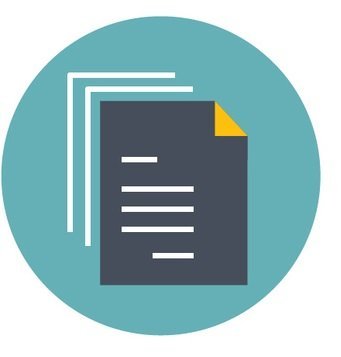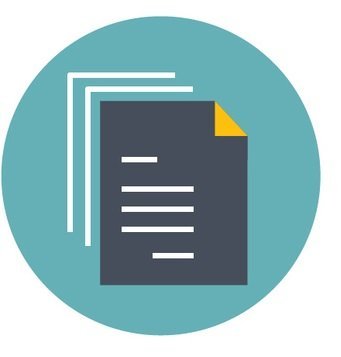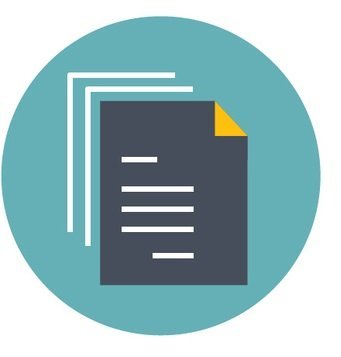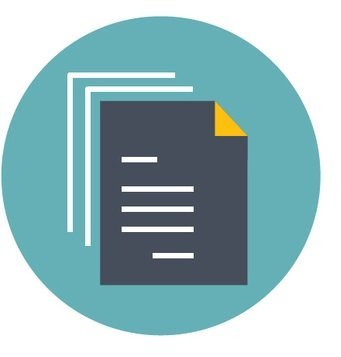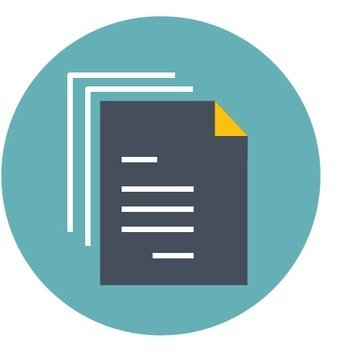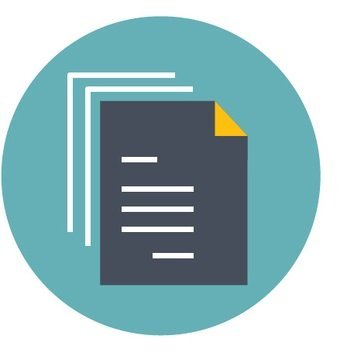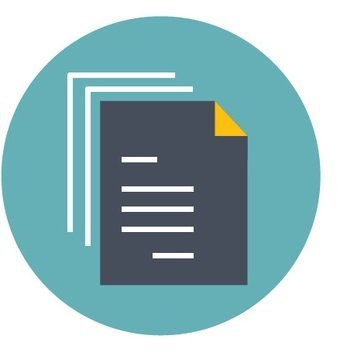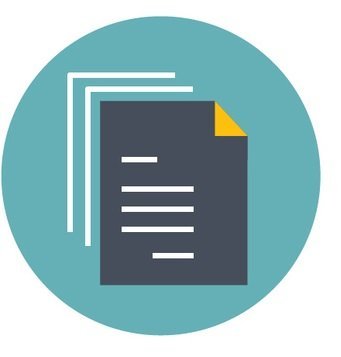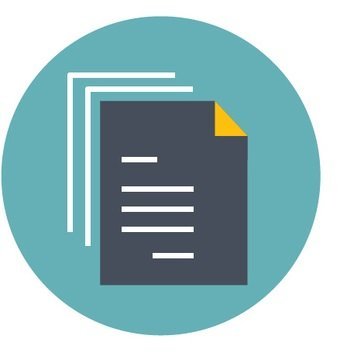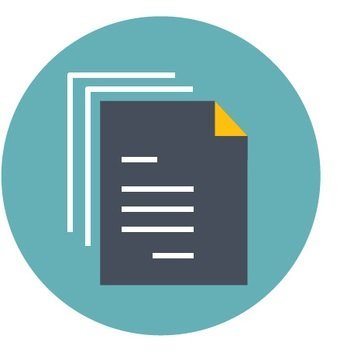Leaderboard
Popular Content
Showing content with the highest reputation since 02/04/22 in all areas
-

Live Lesson 2 - Slides & Replay
Oskar Gutierrez and 2 others reacted to Minoo for a file
Version 1.0.0
74 downloads
Here are the slides for Lesson 2 on: - Present Perfect Continuous (I have been doing) - Present Perfect (I have done) - Action & State Verbs Download the attached slides and review the lesson. You can also watch my LIVE presentation of the lesson here. Next step: Do the Oral quiz.Free3 points -

Live Lesson 1 - Slides & Replay
madhusudhanbabu and 2 others reacted to Minoo for a file
Version 1.0.0
117 downloads
Here are the slides for Lesson 1 on three Present tenses: - Present Simple (I do) - Present Continuous (I am doing) - Present Perfect Continuous (I have been doing) Download the attached slides and review the lesson. You can also watch my LIVE presentation of the lesson here. (12 minutes) Next step: Do the Oral quiz.Free3 points -
future simple questions
Minoo and 2 others reacted to suresh s for a topic
"I am finished" and "I have finished" have similar meanings, but they are not exactly the same. "I am finished" describes a current state or condition and It emphasizes the result or outcome of the action rather than the action itself. whereas "I have finished" describes a completed action in the past, It emphasizes the action that was completed rather than the result or outcome.3 points -
Tenses Bootcamp - Week 2 - Curriculum & Links to related lessons on your online course
Oskar Gutierrez and one other reacted to Nadia Bojilova,Danlex EOOD for a file
2 points -

Oral drills 2 - Exercise 2
Oskar Gutierrez and one other reacted to Minoo for a file
Version 1.0.0
55 downloads
There are 23 exercises in this file (Exercise 2). - Listen to an answer. - Formulate your question. - Repeat the correct question. How to use the drills effectively: - You can read the answers first in the PDF copy before you start the oral drills, but don't write/type the questions down. - Make sure that when you're doing the drills, you're not looking at the PDF transcript anymore. - If necessary, the first time, stop the recording to give yourself time to formulate your question. - Repeat the drills as many times as necessary (over the next days for 20-30 minutes a day) until you can formulate your question without hesitation in the silent gap provided. RECOMMENDATION: When you have done both Oral Drills 1 and 2 a few times, circle back to Steps 1, 2 & 3: Review Lesson > Oral Quiz > Listen to the passage. Notice how much easier the lesson, the quiz, and understanding the passage are now compared to a few days ago.Free2 points -

Tenses Bootcamp - Week 1 - Curriculum & Links to related lessons on your online course
Oskar Gutierrez and one other reacted to Minoo for a file
Version 1.0.0
97 downloads
In week 1, we will be reviewing and practising: Present simple (I do) Present Continuous (I am doing) Present Perfect Continuous (I have been doing) Here are the related lessons in your online course (for additional examples and written exercises if you feel you need them): https://app.anglo-link.com/pedia/elementary/grammar/i_do_im_doing/?content=study https://app.anglo-link.com/pedia/intermediate/grammar/im_doing_ive_been_doing/?content=study You don't need to download the attached file: It's the same 'Curriculum' document which you have already downloaded in the 'Introduction & Information' folder.Free2 points -
Grammar (B1+): Past Tenses
BranislavNS and one other reacted to Duris for a file
A very big thank you to you Minoo for having sent me this lesson. As usual, your explanations are cristal clear, you need a gold medal being the best English teacher in the world. I'm serious. I studied this lesson thoroughly and I made only two mistakes at the quiz. That's too many but I am going to do this quiz again.2 points -

Differences Angry-Annoyed-Upset ?
JesusArgentina and one other reacted to Minoo for a topic
Hello Jesus, All three adjectives can be used, but I would use 'angry' because it's the strongest and matches the word 'demand' better. The other two are weaker: annoyed = slightly angry upset = unhappy, disappointed2 points -

How acted Irregular Plural in the sentence?
Doina Becheru and one other reacted to Minoo for a topic
Hello Jesus, Thank you for your question, which we covered in yesterday's LIVE Q&A session. To recap: When 'people' is the plural of 'person', you must use a plural verb: These people are .... When 'people' is a synonym for 'ethnic group', then it is a countable noun, and you can say 'a people' (+ singular verb) and 'peoples' (+ plural verb). This second meaning is not commonly used. So, consider 'people' to be plural 99% of the time.2 points -

Word order: Where to put 'again'?
Burak75 and one other reacted to Minoo for a topic
The ‘WHAT’ part includes verb + direct object + indirect object, and we must keep these three elements together. In this case, the direct object is the question and the indirect object is for you. That’s why ‘again’ (an adverb) has come after ‘for you’. Here’s another example from Collins Dictionary: I started to feel good about myself again. You may come across examples where the indirect object has been separated from the verb, but make sure you never separate the direct object from the verb.2 points -

Live workshop
Burak75 and one other reacted to Minoo for a topic
Hello Mathias, An excellent question! Here's a description of each type of workshop: Sunday workshops: They involve listening to and speaking with your peers, and typing sentences in the chat box in reply to my questions. One week: Grammar Review & Practice I'm attaching the worksheet from our last session on 15th January. You receive this before the session + the link to the online lesson that we will be revising. You can revise that lesson and do the exercises before the session, or you can come unprepared to test yourself and revise the lesson after the session. In the first part of the session, you partner up with one of your peers in a breakout room, and you do the exercises together. So, in this part you're revising a topic while discussing it with another student. In the second part of the session, I take the whole group through the exercises one by one. Here, you will be listening mainly to me, and occasionally answering a question from me in the chat box. The following week: Conversation Practice (occasionally changed to pronunciation practice) I'm attaching the worksheet from our last session on 22nd January. You can prepare your questions and/or your answers before the session, or you can come unprepared if you want to speak spontaneously. In the first part of the session, you partner up with one of your peers in a breakout room. You ask each other the questions and make a note of each other's answers. In the second part of the session, you share the information you've gathered from your partner with the whole group, speaking for 1-2 minutes. Your partner shares the information he/she has gathered from you with the whole group. NEW Saturday Q&A sessions starting 18th March 2023: hey involve mainly listening to me answering questions posted in the Forum, but you can ask questions live as well. You can post any questions you have in the Q&A Forum in four categories: Grammar, Pronunciation, Vocabulary, and General. You can answer your peers' questions in the Forum (the best way to reinforce your own learning). I choose the best questions from different categories every week and answer them in detail in our Saturday Q&A session. We end each session with a quiz to see how well you remember the different points covered. Don't hesitate to continue this thread if you have any follow-up questions on what I've explained above. 47 Conversation Cars - 22 January 23.pdf 46 Negative words -15 January 23.pdf2 points -

Live Lesson 6 - Slides & Replay
Arturas reacted to Minoo for a file
1 point -

Live Lesson 5 - Slides & Replay
Arturas reacted to Minoo for a file
Version 1.0.0
46 downloads
Here are the slides for Lesson 5 on: - Future Simple - 'be going to' Future - Present tenses for future events - Narrative / Historic Present Download the attached slides and review the lesson. You can also watch my live presentation here. Next step: Do the Oral quiz.Free1 point -

Live Lesson 4 - Slides & Replay
Arturas reacted to Minoo for a file
Version 1.0.0
51 downloads
Here are the slides for Lesson 4 on: - Past Continuous (I was doing) - Past Perfect (I had done) - Past Perfect Continuous (I had been doing) Download the attached slides and review the lesson. You can also watch the LIVE presentation here. Next step: Do the Oral quiz.Free1 point -

Oral quiz 5
Arturas reacted to Minoo for a file
Version 1.0.0
73 downloads
Here's the quiz we did in the LIVE lesson. You can read the PDF first to familiarise yourself with the questions, but don't write or type the answers down. Repeat it orally (without looking at the PDF transcript) several times until you can answer each question without hesitation in the silent gap provided. Next step: Transcription exerciseFree1 point -

Tenses Bootcamp - Week 4 - Curriculum & Links to related lessons on your online course
Arturas reacted to Minoo for a file
Version 1.0.0
16 downloads
In week 4, we will be reviewing and practising: Past Continuous (I was doing) Past Perfect (I had done) Past Perfect Continuous (I had been doing) Here are the related lessons in your online course: https://app.anglo-link.com/pedia/intermediate/grammar/i_did_i_was_doing/?content=study https://app.anglo-link.com/pedia/intermediate/grammar/i_did_i_had_done/?content=study https://app.anglo-link.com/pedia/elementary/pronunciation/common_regular_verbs/?content=study https://app.anglo-link.com/pedia/elementary/pronunciation/common_irregular_verbs/ You don't need to download the attached file: It's the same 'Curriculum' document which you have already downloaded in the 'Introduction & Information' folder.Free1 point -

Verb 'be': Formulation
Burak75 reacted to Minoo for a file
Version 1.0.0
25 downloads
These exercises improve your usage of the following structure in your Study Plan: To be In our LIVE Grammar Workshops: 1. You work through the exercises with one of your peers (breakout room). 2. We go through the exercises all together (main room). 3. I ask you to create your own examples of the structure(s) we have reviewed (chat box). This is the fastest and most effective way of fully understanding and activating grammatical structures. So, I encourage you to join the live sessions when you can. Watch our latest LIVE session on this topic here.Free1 point -

About Conversation Practice Groups on WhatsApp
Helmi reacted to Minoo for a topic
Three things are essential for a successful journey towards fluency in English: 1. Structured and systematic studies: That's what Anglo-Link’s online course offers you. 2. Ongoing teacher support and guidance: That's Minoo's role via her weekly LIVE lessons and workshops. 3. Regular conversation practice: That's what the WhatsApp Conversation groups are for: Here you can connect with people from all over the world and practise speaking English on a regular basis, from once a week to several times a week. Membership is open to all Gold, Silver, and Bronze members as well as the students on my 'Focused Listening Bootcamp' course. To join the conversation group, simply message 'Minoo' from your dashboard (or send an email to minoo@anglo-link.com) with: 1. Your mobile number 2. The name of the country your number is registered in The group meets every Saturday at 3 p.m. London time. You can also reach out to anyone you meet during these weekly sessions and create as many of your own practice sessions as you want. Whatever your current level, you will find others who will be very happy to become your fellow travellers! Click here if you wish to upgrade your membership for access to the: 1. Online self-study course 2. LIVE lessons and workshops with Minoo 3. WhatsApp CONVERSATION group1 point -

Linking words of condition
Badia reacted to Minoo for a file
Version 1.0.0
38 downloads
These exercises improve your understanding and usage of the following topic in your Study Plan: Linking words of condition In our LIVE Grammar Workshops: 1. You work through the exercises with one of your peers (breakout room). 2. We go through the exercises all together (main room). 3. I ask you to create your own examples of the structure(s) we have reviewed (chat box). This is the fastest and most effective way of fully understanding and activating grammatical structures. So, I encourage you to join the live sessions when you can. Watch our latest workshop on this topic here.Free1 point -

The Subjunctive
JesusArgentina reacted to Minoo for a file
Version 1.0.0
27 downloads
These exercises improve your understanding and usage of the following topic in your Study Plan: Subjunctive In our LIVE Grammar Workshops: 1. You work through the exercises with one of your peers (breakout room). 2. We go through the exercises all together (main room). 3. I ask you to create your own examples of the structure(s) we have reviewed (chat box). This is the fastest and most effective way of fully understanding and activating grammatical structures. So, I encourage you to join the live sessions when you can. Watch our latest workshop on this topic here.Free1 point -

Negative words
JesusArgentina reacted to Minoo for a file
Version 1.0.0
32 downloads
These exercises improve your understanding and usage of the following structure in your Study Plan: Negative words In our LIVE Grammar Workshops: 1. You work through the exercises with one of your peers (breakout room). 2. We go through the exercises all together (main room). 3. I ask you to create your own examples of the structure(s) we have reviewed (chat box). This is the fastest and most effective way of fully understanding and activating grammatical structures. So, I encourage you to join the live sessions when you can. Watch our latest LIVE session on this topic here.Free1 point -

Type of words
Minoo reacted to JesusArgentina for a topic
Hi everyone , That was my question on our last live session. What type of word is 'Neither' in this case? Would you like tea or coffee?’ ‘Neither, thanks. and here; Neither Oleg’s mother nor his father spoke English. see youuu1 point -

Type of words
Burak75 reacted to Minoo for a topic
Hello Jesus, Thank you for this question. 'neither' has different functions. In your first example, it's a determiner. In your second example, it has combined with 'nor' to create a conjunction. You can find further explanation and examples in the Cambridge Dictionary, which is the reference book I usually use: https://dictionary.cambridge.org/dictionary/english/neither Enjoy the rest of the week, and see you in our next LIVE session on Saturday. Minoo1 point -

15 must-use phrasal verbs
Burak75 reacted to Minoo for a file
Version 1.0.0
24 downloads
In this lesson, we review 15 phrasal verbs that are important to use actively if you want to sound more natural. 1. Download the PDF and read the explanations, and/or watch the live lesson here. 2. Take the quiz to test yourself. In LIVE sessions, we go through the correct answers together after you've done the quiz on your own. This is the fastest and most effective way of fully understanding and activating a topic. So, do try to join the live sessions when you can.Free1 point -

Easily confused words 1
Leliuss reacted to Minoo for a file
Version 1.0.0
37 downloads
In this lesson, we review some words that are often confused with each other, such as economic and economical, or politics and policy. 1. Download the PDF and read the explanations, and/or watch the live lesson here. 2. Take the quiz to test yourself. In LIVE sessions, we go through the correct answers together after you've done the quiz on your own. This is the fastest and most effective way of fully understanding and activating a topic. So, do try to join the live sessions when you can.Free1 point -

Modal verbs: can, could, may, might
Leliuss reacted to Minoo for a file
Version 1.0.0
45 downloads
In this lesson, we learn how to use these modal verbs correctly. 1. Download the PDF and read the explanations, and/or watch the live lesson here. 2. Take the quiz to test yourself. In LIVE sessions, we go through the correct answers together after you've done the quiz on your own. This is the fastest and most effective way of fully understanding and activating a topic. So, do try to join the live sessions when you can.Free1 point -

Tenses in Questions
Tom reacted to Nana85 for a topic
Hello Minioo and Community, I have learned the chapter 'be doing and going to do' from the upper elementry part. While filling in the exercise Part, I realised, that I'm very unsure which time to choose in the questions phrases. As I looked back to the learning part of this chapter, I found not much information to that, except, that one can use either 'to be+ing' or 'going to' for asking somebody about their personal plans and to avoid 'will' in these questions, except when followed by an if-clause. Is there another chapter where this is being explaint in depth? Her some examples of the exercise Part, where I didn't know why the chosen tense is the correct one. -1. When do your classes start next term? -2. What time is the taxi picking you Up? -10. What time does the show begin tonight? This following exercise ist not a question, but I still could not Figuren out why simple present is the correct tense in this phrase. -4. This programme doesn't end until November. Could you please give me an explanation why the chosen tenses are the correct ones in these cases and tell me in which chapter I can find more information about this? Thanks a lot in advance and best wishes. Nana1 point -

Tenses in Questions
Minoo reacted to Nana85 for a topic
Hello Minioo, thank you so much for your very detailed information to my questions. It helpt me quiet a bit to clear things up for me. I will watch the two lessons you recommended to this topic as well and if I still have questions after that, I will ask you in comming up Video lessons. Thanks again and have a good rest of the week. With best regards Nana1 point -

Some
Nana85 reacted to Minoo for a topic
Hello Nana, Sorry for the late reply. I was away for a few days. Both sentences are correct, and there's no difference in meaning. The person may go and but one or several pairs of new shoes.1 point -

Possible mistake in daily challenge
Daniko900 reacted to Minoo for a topic
Hello Dani, Thank you for your question. It's very common for native speakers to connect the sounds /t/ & /d/ to /u:/. The speaker is saying: wha /tu:/, which is very similar to wha /du:/. That's why you think he/she is saying 'what do you'.1 point -
Speaking English Practice.
Minoo reacted to LuisMendoza for a topic
Hello everyone I'm Luis from Peru (-5 hours from London time), Engineer, my English level is intermediate. I'm looking for a conversation partner to practise speaking English with, both about general and business topics. For the reply please use Anglo-link e-mail to LuisMendoza. Thanks1 point -

Too and Two
Doina Becheru reacted to Minoo for a topic
Hello Jesus, Thank you for your question. No, there isn't one single word that can replace 'two too'. But, because they're both pronounced in exactly the same way, and it's phonetically awkward to say 'two too', it's best to use a synonym of 'too' instead: I'd also like two. I'd like two as well.1 point -
future simple questions
suresh s reacted to Ann-Marie for a topic
Is it correct to say 'When I am finished tomorrow'? I know 'when I've finished tomorrow' is ok. Thanks in advance.1 point -

future simple questions
suresh s reacted to Minoo for a topic
Thank you, Anne-Marie for your question, and Suresh for your good answer. What I can add: 'I'm finished!' can also mean 'This is the end of me! I'm broke. / I'm going to be fired. / I'm going to lose everything. etc. To express the 'outcome' that Suresh mentions above, the expression 'I'm done.' is more common than 'I'm finished.' especially in British English.1 point -
1 point
-

as vs like
Doina Becheru reacted to Minoo for a topic
An excellent topic, Elke! I'll put a lesson together on this topic for one of our next Live Q&A sessions.1 point -

Preposition 'on'
Burak75 reacted to Minoo for a topic
Thank you for posting this question, Doina! For those of you who couldn't join us yesterday, here's the recording of my answer in our live Q&A session: https://drive.google.com/file/d/14HZyo3RQ_FB8KKLnYsJ3Eu6Eam77V7n0/view?usp=share_link1 point -

Of vs Off
Minoo reacted to Doina Becheru for a topic
Hello Minoo, Please explain to us when to use 'of ' vs 'off'. Thank you!1 point -
needn't I or don't I? What's the correct question tag?
Minoo reacted to Nguyen Thao for a topic
I need to start from scratch, needn't I?1 point -
How to activate a grammatical structure?
Minoo reacted to Elke for a topic
Hi, Minoo, I see only one possibility to activate a grammatical structure and this is to use it as often as possible by writing down some sentences or use this structure in a conversation. I find your grammar workshop very helpful. ELKE1 point -
Teaching english for olders
Minoo reacted to G KRISHNA MURTHY for a topic
Madam, I would like to join in this olders course. Please send me the fee details. I am 57 years old.1 point -

Live workshop
Minoo reacted to Matze for a topic
Hello, I have a question about the online meeting with you, how does it work, how should I imagine it, I have never done anything like this before and I just feel insecure. Is it just listening or also actively talking? I would be grateful for a bit of information. Kind regards1 point -

Teaching english for olders
Minoo reacted to Rachid Issaoui for a topic
Most challanges for old mens womens to acquire english1 point -
needn't I or don't I? What's the correct question tag?
Minoo reacted to LuisMendoza for a topic
b) I need to start from scratch, needn't I ? for the use the same expression in negative form.1 point -

How to use your course for optimal results
Matze reacted to Minoo for a topic
Hello and welcome to the course everyone! It's a pleasure to have you onboard! Here are some recommendations on how to make the most of your studies. 1. Where to start Whatever your level is, it would be a good idea to revise all the basics and close any gaps. So start at the first level: Lower Elementary (A2). Use the ‘test’ section of each lesson to check if you have any gaps, and review the recommended sections. When the tests start to get difficult, then study each lesson in detail (Study & Exercise) before taking the test. 2. How long to study each day Try to study 30-60 minutes every day. On the days you have less time, revise a lesson you’ve already done, or just listen to some audio files you’ve downloaded. Revision is really important! If a lesson is challenging you, don't keep repeating it on the same day. Move on and return to it after a few days. 3. How to watch the video lessons Take notes while you watch video lessons or read written explanations. This is really helpful in assimilating the material. For example, you can note down the new words with their English definitions (the less translation, the better) and two example sentences for each structure, one from the lesson and one of your own. 4. How to work on your speaking skills After typing your answer to a written exercise, repeat the recording of the correct answer out loud (not just in your head) several times until you can repeat it easily and without reading it on your screen. The real test of assimilation is when you can repeat it at the same time as the model (shadowing). Also, download the audio files of the online exercises and save them to your mobile device. You can then use these to improve your listening and speaking skills anywhere anytime. 5. Where to find more listening and speaking exercises There are additional listening and speaking exercises in the Daily Challenge section. Some other great things you can do in addition to your online studies: 1. Relaxed listening Every day, watch/listen to something in English for 20-30 minutes. Choose YouTube clips, TED talks, podcasts, or TV series that you like and understand easily, for example a TV series that you’ve already watched in your own language. Just relax and listen; don’t try hard to understand everything. If you don't have time, pair this relaxed listening with another activity, e.g. driving or cooking. Then, once or twice a week, choose something that you love and watch it several times. You can watch it once or twice with English subtitles, and once or twice without subtitles. This will allow you to remember and use new vocabulary and expressions that you hear and read in those clips, talks, or series. If you watch something new every time, only your passive knowledge of vocabulary will increase, but not your active usage. 2. Focused listening & writing Take dictations occasionally. From time to time, use what you have watched or listened to for dictation exercises. You can also use audio books if you have the printed version of the book. Listen and write down a small section (1 or 2 minutes), then check what you’ve written against the subtitles or the page in the book. This is a great exercise to improve many things at the same time: listening, pronunciation, grammar, vocabulary, and spelling. 3. Free writing Keep a diary in English. Once a week, write a few sentences about your week in your diary. You will find that you can gradually write more and better as you progress through your online course. Applying the things you're learning in your own writing will help you to integrate them into your speaking more quickly. If you have access to someone who can give you feedback, ask them to check your writing. Happy studies!1 point -

Why you DO NOT need to sound like a native English speaker!
Fabi Severo reacted to Minoo for a blog entry
These days, I see too many English language students wanting to sound like a native English speaker. They feel they need to speak with a specific native English accent while using many idiomatic expressions. This is a hugely ambitious goal for someone who was not exposed to the English language before they were two or three years old. In my own case, I started learning English at the age of six, and although I’ve been speaking and teaching English every day for the past 37 years, I still don’t sound like a native English speaker. So, if you know someone who has achieved this goal as an adult learner, then they’re a genius! For most of us, however, this is a rather pointless and disempowering goal. Why is this a pointless goal? I can think of four reasons: a) When it comes to communicating with others, accent is irrelevant. Whether we sound British, American, Italian, or Chinese, what really matters is how easily others understand us. b) Good speakers and writers avoid using too many idiomatic expressions and complex structures. They keep their language short and simple. c) English grammar is even difficult for natives to master. As a proofreader, I regularly correct and improve native speakers’ poorly written English. d) Out of the 1.5 billion English speakers worldwide, only 25% are native. If, for the sake of facilitating communication, one group had to change the way they spoke, it would logically be the natives. Why is no-one asking them to lose their regional accents and limit their vocabulary to the 5000 words that are sufficient to communicate in most situations? Why is it a disempowering goal? Our voice and the way we speak is a fundamental part of our personal and cultural identity. If we feel that we must change this important aspect of our identity in order to succeed in life, we’re really telling ourselves: ‘I’m not good enough! I must become someone else, or pretend that I am someone else.’ This negative self-image can generate feelings of lack, inferiority, and envy that disempower us. Even if we work with the most brilliant voice coach to change our accent and memorise the whole of the English idioms dictionary, this ‘I’m not good enough’ belief will result in failure. Loss of self-belief and self-confidence is a huge price to pay for a goal that, as I argued above, is totally pointless. What’s a better goal? Instead of wanting to sound like someone else when we speak English, let’s focus our efforts on sounding like our unique self who speaks with a clear pronunciation and uses simple and correct language. Just imagine for a moment how much less stressful and more motivating this goal can be! Also, put yourself in the shoes of the people you interact with in English, both native and non-native. Don’t you think they love the fact that they can understand you easily and interact with you comfortably? Or, do you imagine that they think less of you because you don’t speak like someone from Melbourne, Dublin, or Texas? I’d love to read your thoughts and stories in the comments section.1 point -

Why you DO NOT need to sound like a native English speaker!
Fabi Severo reacted to Omar Karakhan for a blog entry
Hello Head Tutor, Minoo. I totally agree with you.The main thing is that people understand us, and we understand them. Keep it simple! Regards, Omar1 point -

Essay writing tips tutorial
Roman_R reacted to Minoo for a topic
Dear all, This is to let you know that the tutorial has just been released on my YT channel. It will soon be published in the 'tutorial' section of the 'video lessons' on the platform. If you would like to watch it straight away, go to this link: https://youtu.be/mXrqCJ2hvI0 I hope you enjoy it.1 point -

Present Subjunctive
Minoo reacted to MariaTeresa for a topic
..I've always thought that written English was only formal.. isn't it bad to write as we speak? Does it depend on the subject? I'm taking my first written text next week: I'll just try to write clearly then, not to formally, using proper grammar, spellig, punctuation and forgetting about those complex grammatical structures or sentence patterns I've never fully comprehended. Thanks for your immediate reply!1 point -

Example Question: ‘Fill in’ & ‘Fill out’
Fabi Severo reacted to Minoo for a topic
Yes, strangely enough, they are. ‘fill in (a form)’ is more common in British English, and ‘fill out (a form)’ is more common in American English.1 point


